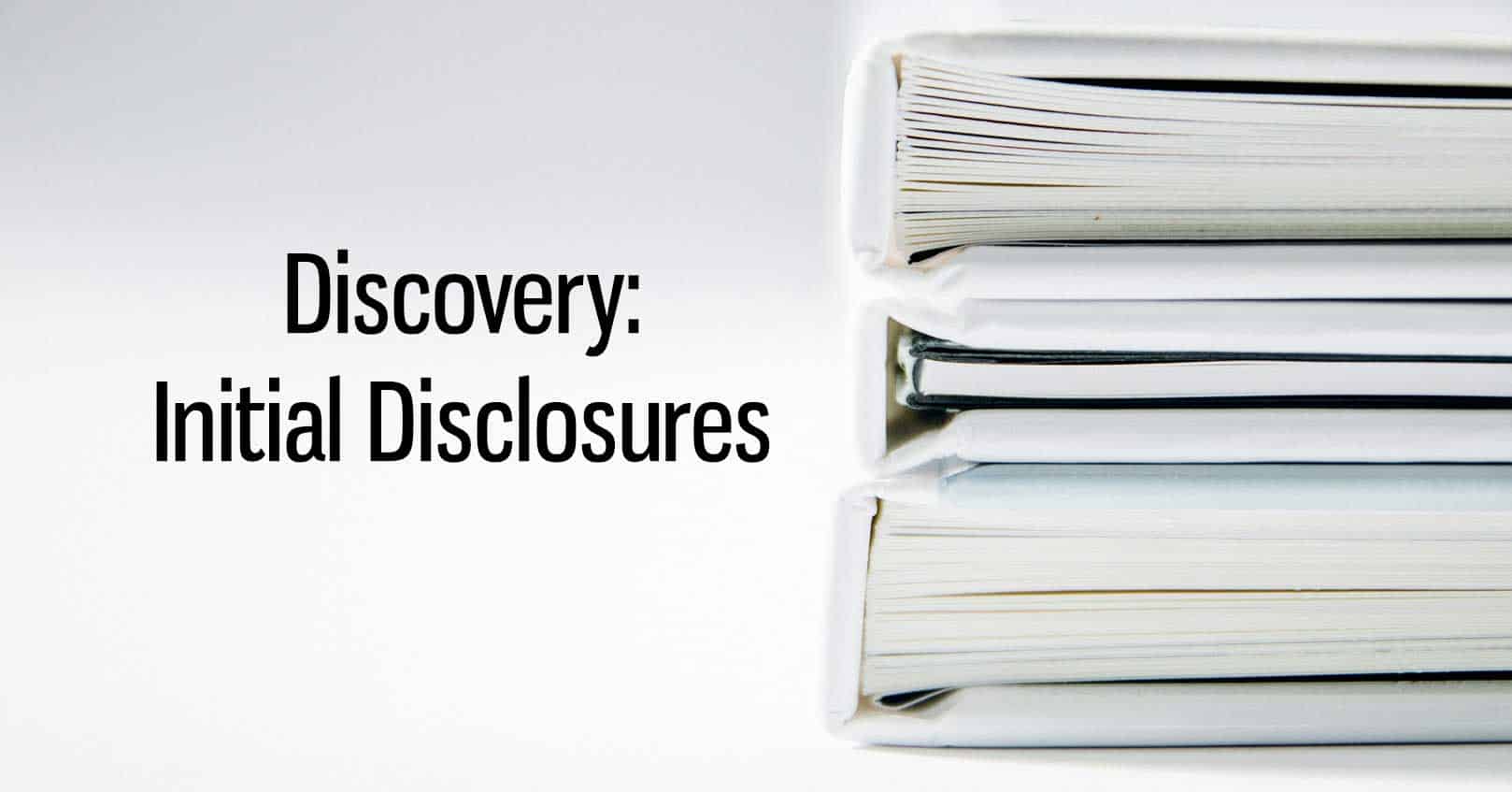
Discovery is a major part of civil litigation, the process through which the parties gather evidence before trial. There are several different discovery methods or tools: initial disclosures, written discovery (document requests, interrogatories, requests for admissions), subpoenas (orders that compel non-parties to provide information or documents), and depositions (recorded, transcribed interviews of witnesses).
The very first step in discovery is the exchange of initial disclosures. Through initial disclosures, the parties are required to provide information they may use to support their cases at trial. This includes things like lists of witnesses and documents. The parties are required to supplement their initial disclosures as the case goes on. So if a new witness shows up, or if new documents are uncovered, those have to be disclosed.
And the stakes are high: if a party fails to disclose evidence, she may not be able to use that evidence at trial.
We are in the process of putting together our initial disclosures in my copyright infringement case against Tiffanie Rushton, and we should receive Rushton’s initial disclosures soon. This first round of discovery should give everyone involved a good sense of what evidence the parties currently have in their hands before any deeper investigation takes place.
Okay, so I’ve just scratched the surface. This process is so arcane and time-consuming! Hours of work on both sides.
Next time we’ll talk about interrogatories.
Click here to support this copyright infringement case.
How Shawn came to represent me:
Attorney Shawn P. Bailey takes over plagiarism case



Rachel Ann Nunes
Thank you, Loralee. It's been a terrible six months, but things are a lot better now, and I have very much appreciated the support. Thank you for the encouraging posts and emails!
LoraLee Evans
Lots of people are proud to support you, and pray for you, Rachel. You are a wonderful human being! I hope everything works out as it should, for everyone.